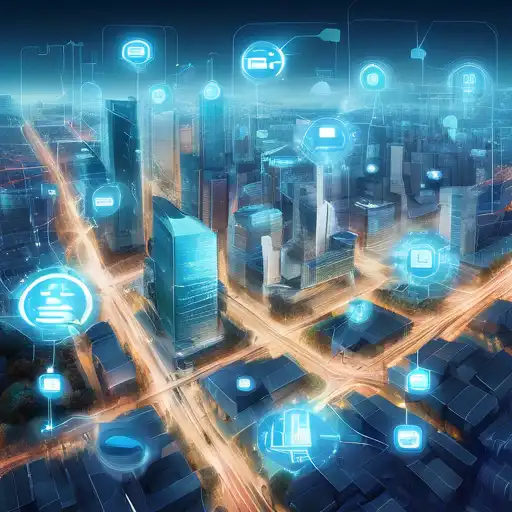Introduction to IoT in Smart Cities
The Internet of Things (IoT) is revolutionizing the way we live, work, and interact with our urban environments. By embedding sensors and devices in city infrastructure, IoT technology is enabling smarter, more efficient cities that improve the quality of life for their residents. This article explores the pivotal role of IoT in the development of smart cities, highlighting key benefits and challenges.
Key Benefits of IoT in Smart Cities
IoT technology offers numerous advantages for smart cities, including enhanced efficiency, sustainability, and citizen engagement. Below are some of the most significant benefits:
- Improved Traffic Management: IoT devices can monitor traffic flow in real-time, reducing congestion and improving road safety.
- Energy Efficiency: Smart grids and IoT-enabled devices help cities reduce energy consumption and lower carbon emissions.
- Waste Management: Sensors in waste bins can optimize collection routes, saving time and reducing operational costs.
- Public Safety: IoT technologies enhance public safety through real-time monitoring and emergency response systems.
Challenges Facing IoT Implementation in Smart Cities
Despite its potential, the integration of IoT into urban environments is not without challenges. Privacy concerns, cybersecurity risks, and the high cost of infrastructure are among the main obstacles cities face when adopting IoT solutions.
Case Studies: IoT Success Stories in Smart Cities
Several cities around the world have successfully implemented IoT technologies to address urban challenges. For example, Barcelona has used IoT to improve water management and reduce costs, while Singapore’s smart traffic systems have significantly decreased congestion.
Future Prospects of IoT in Smart Cities
The future of IoT in smart cities looks promising, with advancements in AI and machine learning expected to further enhance urban living. As technology evolves, cities will become even more connected, efficient, and sustainable.
For more insights into how technology is shaping urban development, check out our article on The Future of Urban Mobility.
Conclusion
The role of IoT in smart cities is transformative, offering solutions to some of the most pressing urban challenges. While there are hurdles to overcome, the potential benefits of IoT for urban efficiency, sustainability, and quality of life are undeniable. As cities continue to grow and evolve, IoT will play a crucial role in shaping the future of urban living.
